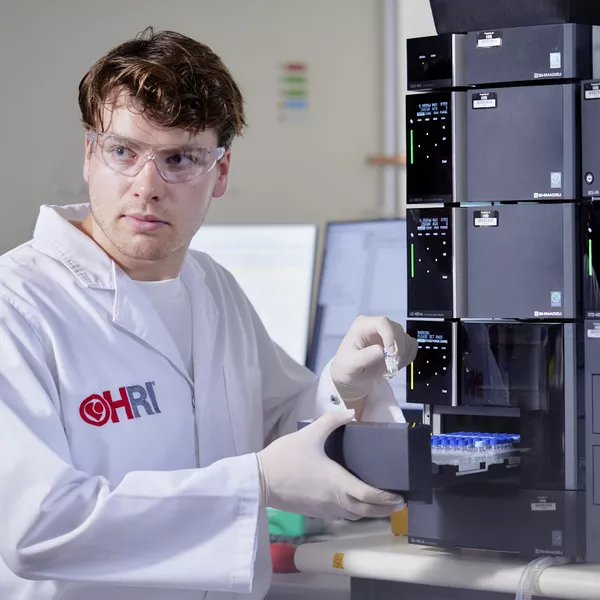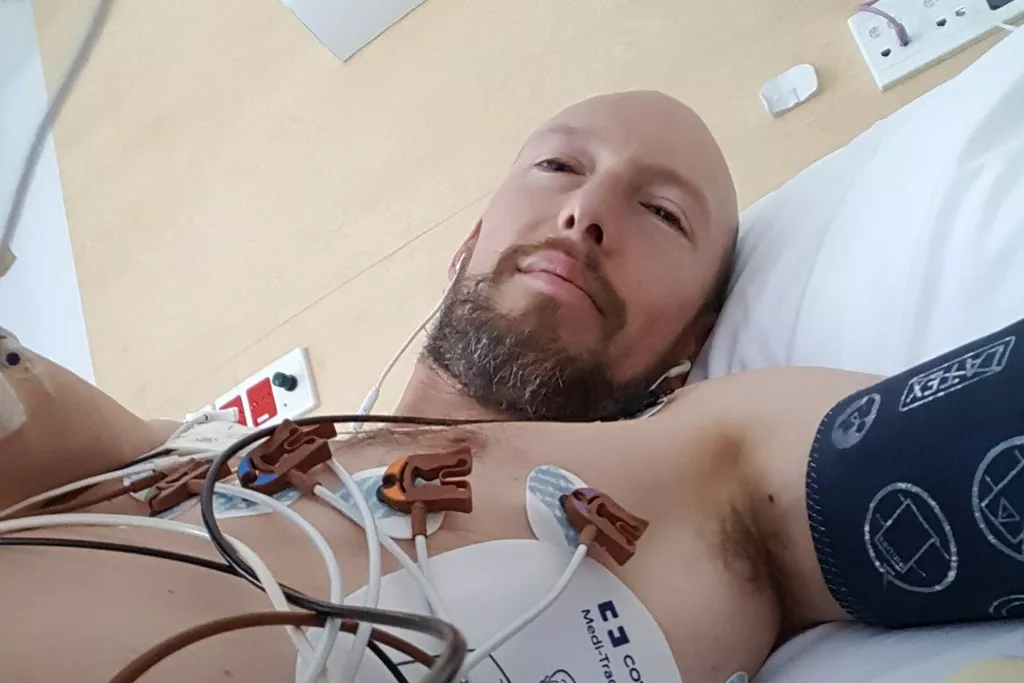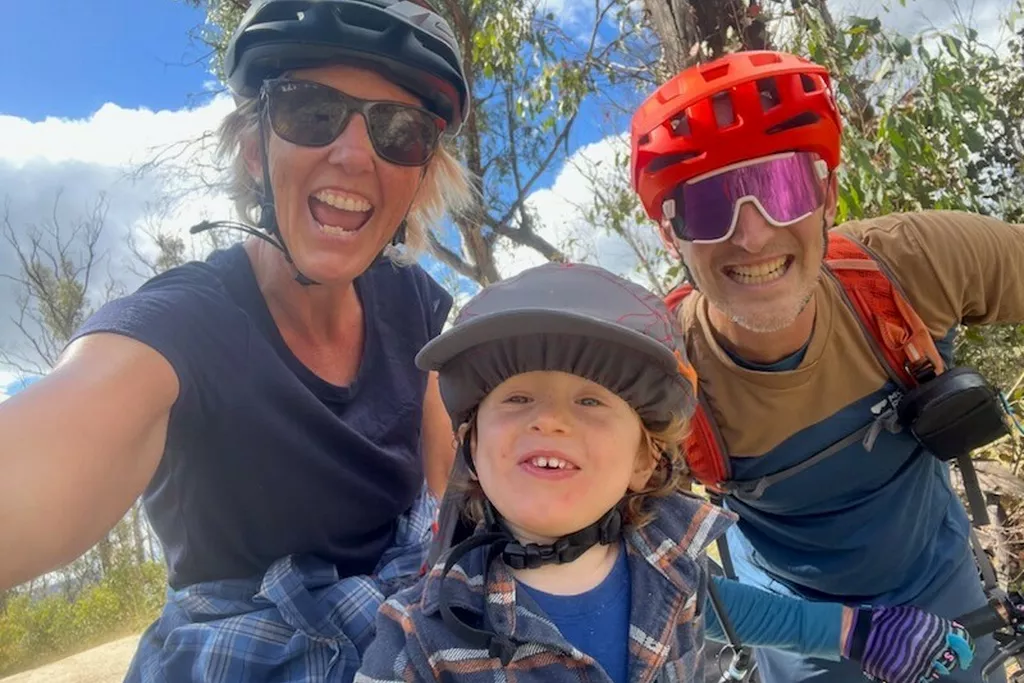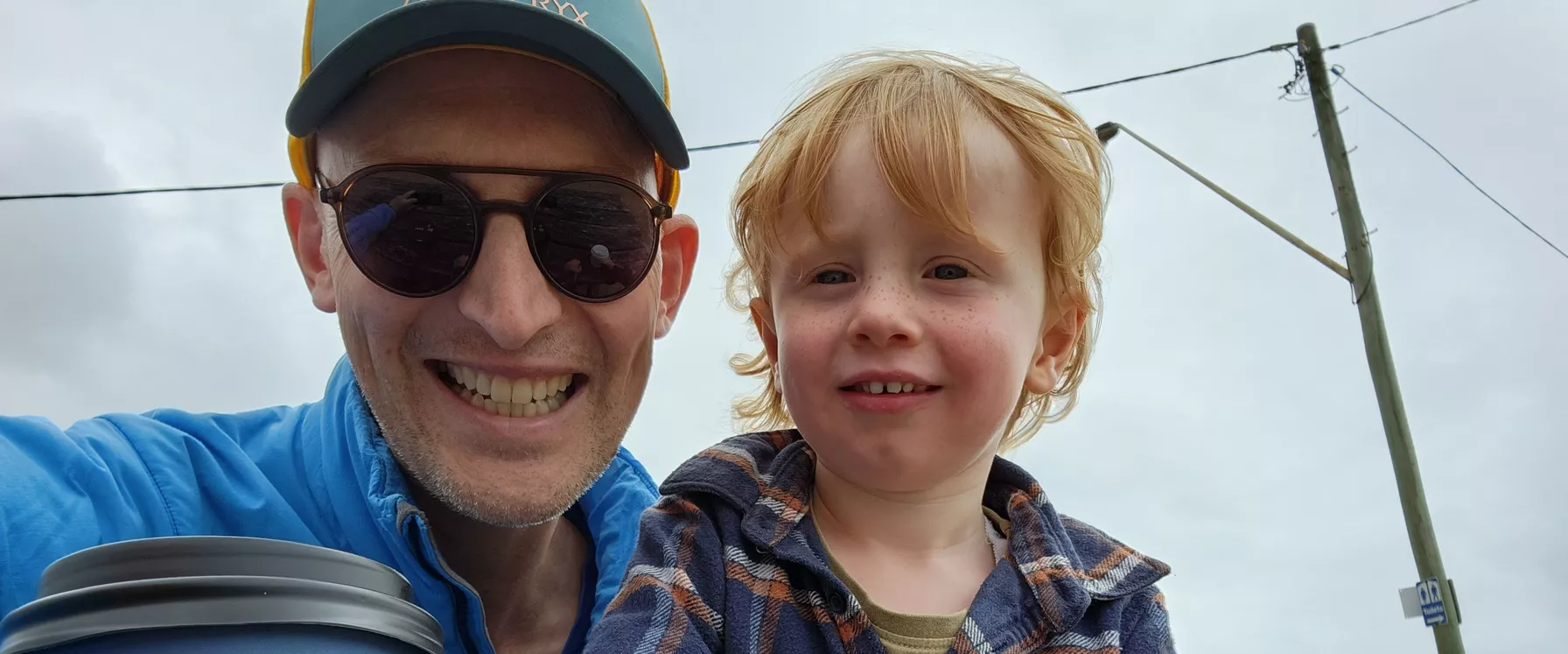
After suffering a heart attack at the age of just 40, Matt is acutely aware that his family history of heart disease could one day impact his son, Clancy. He shares his heartfelt thoughts in a letter to Clancy.
Dear Clancy,
Your mother and I are so lucky to be your parents. You are only three years old, but you have given us new purpose.
I've competed in running events and achieved the Triple Crown of Australian multi-stage mountain bike racing – but the proudest moment in my life was the day you arrived. It’s hard to believe, but there was a time when I never thought I’d have that joy.

The day it happened, I was two weeks away from participating in an international running event. I always thought if you were fit and healthy you could bypass these sorts of things. I thought I would live to 100, like your great grandfather.
But there I was, in the back of the ambulance, desperately trying to get through to your mum on the phone. She was in the US for work, thousands of miles away, and I didn’t know if I would ever see her again. I never imagined that I would survive long enough to one day become your father.
And even though I survived, it felt pretty crushing.
I’d been an athlete, but that person didn’t really exist anymore. I’d looked after myself all my life with the best food, the best coaches and the best everything, and now it was all over.

Your mother and I moved out of the city to the coast to be closer to nature. When an opportunity came up to change careers and work in the medical field, I took a leap of faith and did that as well.
It's been a lot of hard work, but I’ve recovered well. In fact, my specialist calls me an “outlier”, since my recovery has been so out of the ordinary. My scans show no permanent damage to my heart from the heart attack, and there is no scarring tissue. I think my high fitness level before the heart attack, and determination to return to health, has ensured this.
We are all so unique, each and every one of us. What worked for me might not work for someone else.
Why am I telling you all this?
I want to be here for you. I want us to share together in the things that I'm passionate about, like health and sports – but I also want to give you the ability to ask questions about your own health.
When it first happened, I couldn’t find any stories about other people that would give me hope. I really struggled to find someone else who had gotten their health back to where it was.

Recently, I discovered that your aunt and your cousin also have the same indicators I had that triggered my heart attack. It seems to run in our family, so I worry about what this could mean for you.
I want you to understand your own health and your own heart. I want you to understand what happened to me.
I hope that one day we will better understand heart disease and how all the individual things that make you you and me me play a part. I want you to have all the personalised care and support that you need to face anything in your way.
I am so proud of you.
Love,
Dad
How is HRI helping?
HRI is conducting innovative research to develop new therapies for heart attack.
Our Fluxomics Centre, led by Dr Sergey Tumanov, is devoted to identifying and exploring the cellular changes that are unique to each individual’s cardiovascular disease – with the ultimate goal of personalised methods to prevent, detect, and treat cardiovascular diseases like heart attack.
Our Coronary Diseases Group is investigating whether the anti-inflammatory drug colchicine, which has already proved safe and effective for treating conditions like arthritis and gout, can be repurposed to protect against repeat heart attacks. A collaboration between the Coronary Disease Group and our Clinical Research Group has also discovered that the heart releases certain substances during a heart attack that can be detected in the laboratory.
How you can help
Stay updated on HRI’s latest research and health tips: subscribe to our e-newsletter
Related research areas


